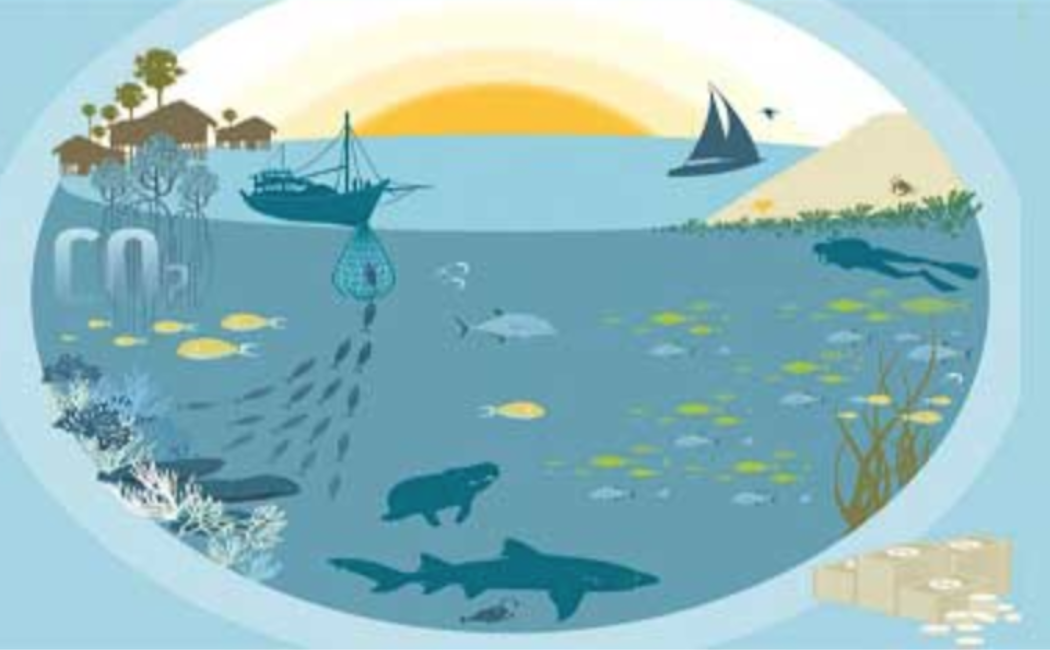


Open Mini-Symposium:
PRESENTERS: Assoc. Prof. Amanda E. Bates, Dr. Elisabeth Strain, Dr. Russell Thomson
DATE: Tuesday, June 18, 2019
TIME: 13:00 - 14:00
LOCATION: Building 5, Level 5, Room 5220
SUMMARY: Marine Protected Areas (MPAs) and No Take Zones (NTZs) are a valuable tool to assist management plans for conservation, protection and recovery towards previous states of marine coastal ecosystems. Previous research on attributes of MPAs identified that NTZs, enforced, old (> 10 years), large (> 100 km2) MPAs, and MPAs isolated by deep water or sand are the key features for their success (Edgar et al., 2014). The objective of this interdisciplinary Synthesis Project is to update and re-analyse this global database and to evaluate the state of currently existing MPAs in the Red Sea at a regional scale. The first objective will be to use globally collected Reef Life Survey data from more than 87 MPAs to determine principles of MPA design that result in biodiversity outcomes with a focus on (1) complexity and socioeconomics, (2) thermal stressors, and (3) functional traits. Our second goal is to implement a well-established protocol to assist us with the planning and design of MPAs in the Red Sea. This will include a critical assessment of the effectiveness of the existing reserve network, including a gap analysis of whether regionally significant natural habitats are adequately represented, and consideration of connectivity in the network design.
 Assoc. Prof. Amanda E. Bates Associate Professor Ocean Sciences Centre, Canada Bio: Prof. Bates' research quantifies biodiversity in time and space with relevant environmental data and the physiological tolerances of species. She transforms physiological data into predictive tools incorporating both exposure and species' sensitivities to global change drivers. Her overarching goal is to generate novel theory and approaches for managing and conserving our marine resources. | Talk title: Thermal Safety, Environmental Variability and Biodiversity Change Talk summary: Determining the vulnerability of species in an era of global change remains a priority in order to make accurate predictions, prioritize future research, and advise conservation and management practices. The identification of mechanisms enabling species to cope with temperature change underpins our capacity to predict biotic responses to climate variability and develop reliable ecological indicators for accurate and meaningful tracking of threats. Global data sets of thermal niche data can thus help define patterns in thermal physiology of ectotherms across a wide range of habitats and latitudes. While the magnitude of experienced temperature is clearly important, environmental variability is also a key determinant of physiological response that will influence species survival if variability also becomes more extreme. Considering environmental variability in combination with thermal physiology can inform predictions of species and community vulnerability, range shifts and change in the functional traits of communities. |
 Dr. Elisabeth Strain Researcher The University of Melbourne, Australia Bio: Dr. Strain is an early career researcher with an excellent track record in the field of marine conservation. Her research focuses on assessing the direct and indirect benefits of marine protected areas (MPAs) for different functional groups of organisms, using a range of statistical techniques. She has collaborated with colleagues from the University of Tasmania (Australia), Queen's University (UK), and the University of Bologna (Italy) to produce high-impact publications, and to lobby for a new no-take MPA. | Talk title: Direct and Indirect Benefits of MPAs for Coral Reef Communities Talk summary: Marine protected areas (MPAs) are increasingly implemented to conserve or restore coral reef biodiversity, yet evidence of their benefits for enhancing coral cover is limited and variable. We used a global dataset obtained using standardized survey methods at 465 sites associated with 30 MPAs in 28 ecoregions to test the effects of five key MPA attributes (>10 years old, well-enforced, no-take, large and isolated) on coral cover, algal cover and reef fish biomass. We also tested the direct (reducing disturbance by human activities) versus indirect pathways (increasing grazing potential through recovering populations of herbivorous fishes) by which MPAs can influence coral and algal cover. Only well-enforced, no-take and old (>10 years) MPAs had higher total coral cover (response ratio 1.08–1.19×) than fished sites, mostly due to the increased cover of massive coral growth forms (1.34–2.06×). This effect arose through both the direct influence of protection and indirect benefits of depressed algal cover by recovering herbivorous fish biomass. Neither the direct (standardized coefficient = 0.06) nor indirect effects (standardized coefficient = 0.04) of no-take protection on coral cover were particularly strong, likely reflecting regional differences in fishing gear, targeted species and trophic webs. MPAs promote the persistence of some functional groups of corals, and thus represent an important management tool, globally. |
 Dr. Russell J. Thomson Statistical consultant Western Sydney University, Australia Bio: Dr. Thomson is a statistical consultant at Western Sydney University, where he enjoys helping HDR students and staff with their research projects. He coordinates regular workshops on statistical analysis and conducts various statistical consulting projects. He has a strong interest in applied statistics and has 88 peer-reviewed papers with an H index of 30. | Talk title: Marine Research using Machine Learning Talk summary: Dr. Russell Thomson will discuss the use of machine learning in marine research. He will discuss biodiversity prediction, niche modelling and image recognition. Techniques mentioned will include random forests, gradient forests and neural networks. |
| PARTICIPANTS | PARTICIPANTS – via video-conference |
| Dr. Alexandra Steckbauer, KAUST, KSA Assoc. Prof. Amanda E. Bates, Ocean Sciences Centre, Canada Prof. Michael L. Berumen, KAUST, KSA Dr. Thomas DeCarlo, KAUST, KSA Ms. Aislinn Dunne, KAUST, KSA Dr. Joanne I. Ellis, KAUST, KSA Dr. Laura Gajdzik, KAUST, KSA Prof. Ibrahim Hoteit, KAUST, KSA Dr. Elisabeth Strain, The University of Melbourne, Australia Dr. Russell J. Thomson, Western Sydney University, Australia Dr. Darren Coker, KAUST, KSA Ms. Lily Genevier, KAUST, KSA | Dr. Graham J. Edgar, University of Tasmania, Australia Dr. Alison Green, Nature Conservation, Australia Dr. Zoi Kokkini, Italian National Research Council, Italy Dr. Benjamin Kürten, Forschungszentrum Jülich, Germany Assoc. Prof. Camilo Mora, University of Hawaii, USA Dr. Trevor Willis, Plymouth University, UK Dr. Nikolaos Zarokanellos, Balearic Islands Coastal Observing and Forecasting System (SOCIB), Spain |